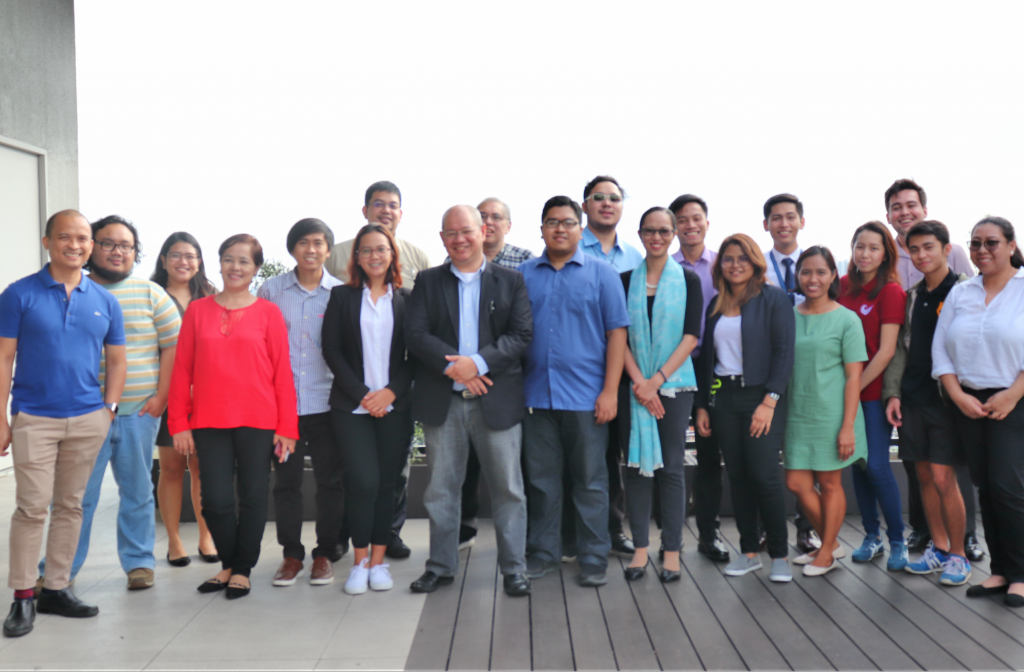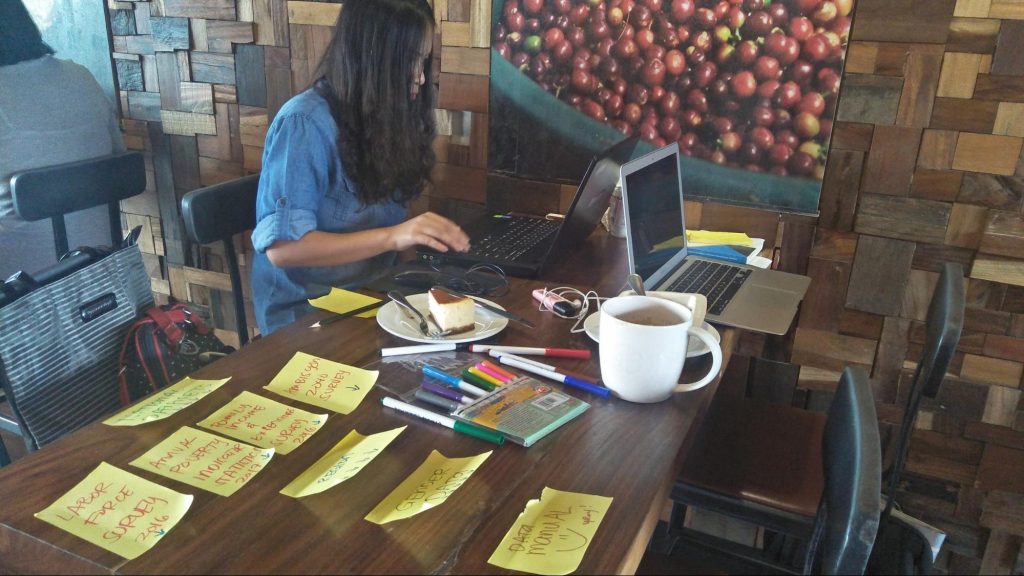Authors: Ana Martha Galindes and Marco Angelo S. Zaplan
This blog is part of the event report series on International Open Data Day 2018. On Saturday 3 March, groups from around the world organised over 400 events to celebrate, promote and spread the use of open data. 45 events received additional support through the Open Knowledge International mini-grants scheme, funded by Hivos, SPARC, Mapbox, the Hewlett Foundation and the UK Foreign & Commonwealth Office. The events in this blog were supported through the mini-grants scheme under the Open Research Data theme.
Pioneering discussions on open research in a country where data management is still in the works can be rewarding yet challenging. In celebration of global Open Data Day, the Institute for Leadership, Empowerment, and Democracy (iLEAD) and Datos.PH initiated small group discussions on March 3, 2018. The organizations, while taking different tracks, have fielded the same question, how can we make data and literature more open for the research community?
Gathering over twenty representatives from the academe, government agencies, civil society organizations, and research institutions, iLEAD embarked on a stocktaking exercise to assess the current research landscape in the Philippines. Datos.PH, on the other hand, organized a data hackathon with researchers and students, with the aim of making national datasets more disaggregated and gendered to enable analysis of datasets at the regional level.

Differences and Similarities
Both events steered towards the goal of widening the access of the citizens, knowledge producers, advocates, and other infomediaries to data, research materials, and literature. For this, two approaches were used. Datos.PH’s hackathon involved time running and analyzing datasets while iLEAD’s event involved discussions with resource speakers from government and university libraries.
Datos.PH’s hackathon brought together a small and focused group of technical data users, in this case, Statistics major students, to crunch data, disaggregate national datasets, and bring out gender data analysis into the open. The goal of each session was to disaggregate datasets by region and sex of the respondents. Once disaggregated, breakout groups presented initial statistical analysis of disaggregated datasets. iLEAD’s Roundtable Discussion engaged data users and suppliers to delve into the opportunities and barriers on open research.
While the two initiatives produced different outputs, both have concluded that the current data landscape is still a long stretch from fully reaching various stakeholders.

Lessons Learned
iLEAD was able to surface issues and concerns in opening up research from its initiated exercise. While there are significant strides in opening government data from the previous years, there are still challenges in making the programs genuinely usable and relevant for different publics. On the side of the government, the biggest gap still lies on the issue of legal frameworks in information sharing and accessing such as the long-standing contentions on the country’s Data Privacy Act and the absence of a Freedom of Information (FOI) law that will expand the scope of government information disclosure to subnational levels and other branches of the government. There is also low use of data made available for the public, too, which suggests a disconnect between the data that are being disclosed and the data needs and demands of the people.
In the academic contexts, similar issues surfaced as existing practices in opening research products (books, journals, and other reports) are bound by Intellectual Property (IP) policies. Strict academic sharing practices coupled with inhibitions from some contributors hinder open information exchange among researchers, advocates, and other knowledge producers. There are also financial barriers. Academic institutions have to pay for steep collation and subscription fees in acquiring access to academic journals and databases. Digitizing and improving information systems of libraries also incur significant costs, which many schools usually find difficult to finance if they do not have the resources.
Meanwhile, Datos.PH’s workshop sessions worked on national datasets including the family income and expenditure survey (FIES), labor force survey (LFS), and annual poverty indicators survey (APIS). It was able to develop a simple manual, which provides users ways to use the disaggregated data as a means to sustain the practice long after the workshop. The manual includes analysis and questions local policymakers, researchers, and advocates may ask using the data. By the end of the data dive, Datos.PH managed to put together a draft manual and fifty-four disaggregated datasets coming from three datasets.
Datos.PH’s event learnings boils down to this: there is so much data available yet even the most technical users have little access to it. Some did not even have idea about the existing datasets the Philippine Statistical Authority (PSA) produces. This is surprising given that primary users of datasets are the statisticians themselves. Moving forward, demand for these datasets needs to catch up. This is to provide more cases to induce disclosures and production of data for public use.
There is so much to be done for open research. While there are financial, legal, and technical barriers that need to be overcome, these discussions are a step towards building a community that shares the same advocacy of making data in the Philippines accessible and usable for all Filipinos.
The Institute for Leadership, Empowerment, and Democracy (iLEAD) (http://www.ilead.ph) is a non-stock, non-profit think tank consultancy and resource center that focuses on strategic policy work to strengthen democratic institutions. Datos.PH is a nonprofit organization working towards building capacities of stakeholders and advocating for data for evidence-based public policies at the local level. Both are based in the Philippines.








